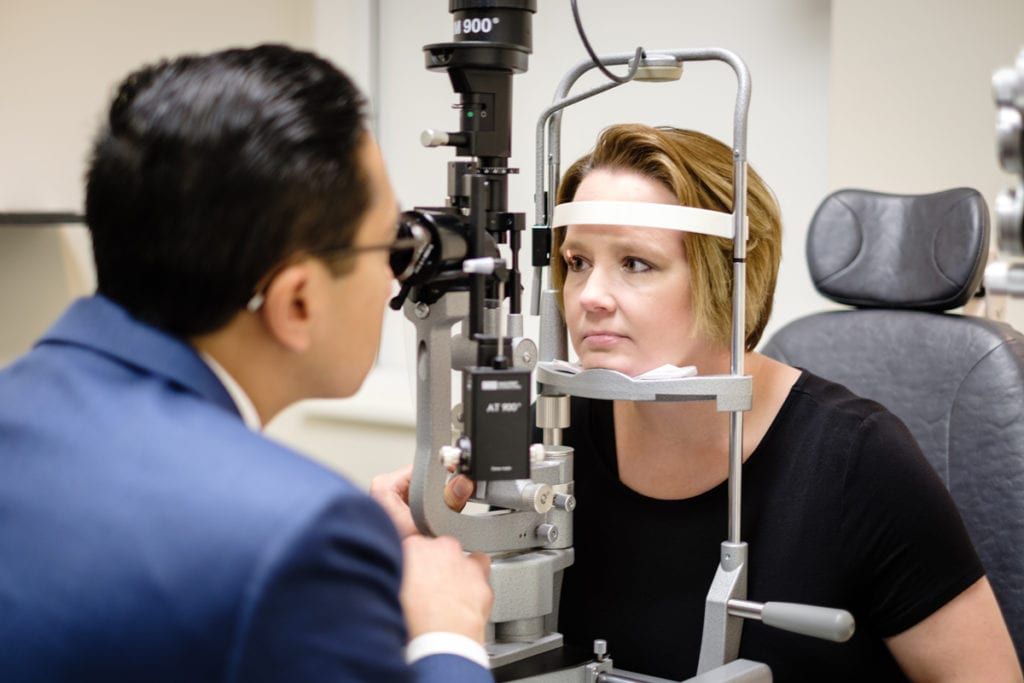Eye exams are professional screenings used to evaluate the health of the eye and diagnose vision impairments and disease. Each is comprised of a series of several tests that analyze various functions of the eye, such as color differentiation, distance vision, and peripheral awareness. A comprehensive eye exam can identify vision complications during their earliest stages, providing eye doctors the opportunity to treat them more easily. A comprehensive eye exam will consist of:
- Visual acuity testing to measure the clarity of your sight
- Refractive evaluation to diagnose refractive errors
- Visual field testing to measure your peripheral vision
- Color vision analysis to identify an inability to distinguish certain colors
- Examination of the back of your eye, retina, and underlying blood vessels
- Glaucoma testing to measure intraocular fluid pressure
- Eye muscle testing to identify weak eye movements
- Corneal exam to evaluate the health of the cornea, iris, lens and surrounding tissues
Did you know…
that a periodic eye exam can reveal underlying health issues long before other symptoms are present? In addition to identifying vision complications and eye disease, a comprehensive eye examination can also reveal conditions like high blood pressure, diabetes, or even a brain tumor.
Frequently Asked Questions
I’m healthy and can see clearly. Do I need an eye exam?
Yes. Eye examinations can reveal much more than vision impairments – they can save lives. If you haven’t had an eye exam in the past 12 to 24 months, contact your eye doctor to schedule an appointment.
What should I expect during my eye examination?
Your eye exam will take approximately half an hour and will include a series of tests using advanced optometric machinery. You will also be asked about your medical history and any vision complications you may be experiencing. Eye exams typically do not hurt, but you can expect to look into bright lights or have air blown into your eyes during your visit.
What should I expect following my appointment?
If you are given a clean bill of health with no vision impairments, you can return to your normal activities and plan to visit your eye doctor again in one to two year. If you are found to have refractive errors, you may be given a prescription for corrective lenses. In cases where a disease is present, you may be referred to a vision or medical specialist for further treatment.



